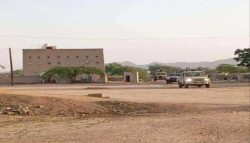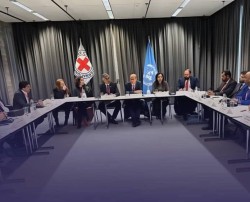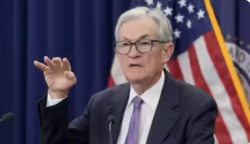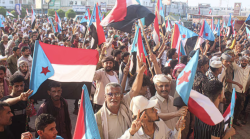Arab League chief calls for strategic partnership with UN to end region’s wars
- 2021-04-20 15:40:40


 Pierre Rayer: Art, Science, and Happiness: The Universal Mission of Transmission to Future Generations through Patronage at the Louvre Abu Dhabi
Pierre Rayer: Art, Science, and Happiness: The Universal Mission of Transmission to Future Generations through Patronage at the Louvre Abu Dhabi Ahly crowned Super champions after dramatic extra-time win over Modern Future FC
Ahly crowned Super champions after dramatic extra-time win over Modern Future FC Yemeni Honey..A Development Wealth Threatened By Conflict And Climate Change
Yemeni Honey..A Development Wealth Threatened By Conflict And Climate Change California wildfires: Millions warned of possible power cut
California wildfires: Millions warned of possible power cut Central African rebels launch attacks near capital
Central African rebels launch attacks near capital Yemeni Gov't Forces Foil Al-Qaeda Drone Attack in Shabwa
Yemeni Gov't Forces Foil Al-Qaeda Drone Attack in Shabwa Yemeni Gov’t, Houthis Arrive in Muscat for UN‑Sponsored Prisoner Talks
Yemeni Gov’t, Houthis Arrive in Muscat for UN‑Sponsored Prisoner Talks US Federal Reserve Cuts Rates by 25 bps, Markets Look to the Future
US Federal Reserve Cuts Rates by 25 bps, Markets Look to the Future Louvre jewel thieves escaped with 30 seconds to spare, Senate inquiry finds
Louvre jewel thieves escaped with 30 seconds to spare, Senate inquiry finds STC chief says Sanaa is 'next target' after taking control of Yemen's south
STC chief says Sanaa is 'next target' after taking control of Yemen's south
